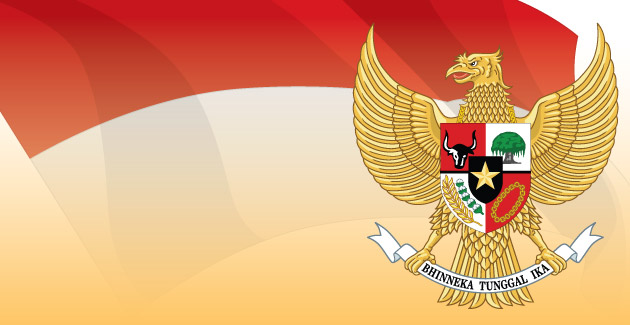Every June 1, Indonesian people commemorate the birth of Pancasila. However, is it enough to commemorate it as a routine without any intention to practice the values of Pancasila in real life? It is important and urgent, considering that Pancasila is the heart of this nation’s life. Pancasila as the nation’s collective ideology that gives guidance on the creation of national and state life in the right corridor.
Against Homogeneity
History has shown that many people rejected efforts and actions to create a uniform life. Postmodernism as one of contemporary philosophy, one of the factors of its birth was the reaction to modernism that “glorifies” uniformity. Evidence of modernism’s failure to create an ideal (uniformity) as a path to mutual benefit can be seen in two facts.
First, Auschwitz, the massacre of six million Jews by the Nazis. By postmodernism, Auschwitz is a reality that cannot be understood, which is contrary to the notion of modernism that everything can be understood. Second, the collapse of the Berlin Wall and the breakup of the Soviet Union. This fact shows that diversity guides the realization of harmonious life. Recognition of diversity makes life more meaningful and humane (Wirawan, 2015: 286).
Meanwhile, the spirit of modernism’s uniformity is apparent lately in Indonesia. It became massive as it is supported and legitimized by the political system. The political system that desires to gain power justifies any means without regard to the integrity of the nation.
Certain identities, religion, for example, are politicized as a political tool to gain power. Efforts to make Indonesia’s “one identity” become political propaganda for the sake of gaining the support of certain masses. As a result, there is prejudice and hatred between groups and seeds of disintegration grow.
Pancasila as Causa Materialis
Bung Karno repeatedly denied being named the creator of the Pancasila. He said, “I am just a Pancasila digger from Indonesian homelands, and I dedicated five pearls that I took back to the Indonesian people.” Bung Karno’s statement clearly explained that the values contained in the Pancasila were extracted from the culture of Indonesian nation itself (Causa materialis). For this reason, values in the Pancasila were formulated by the founding fathers of the nation by taking into account the diverse socio-cultural conditions of Indonesia.
The founding fathers, since its inception used Pancasila as a weapon to unify the differences in ethnicity, religion, race, and group (SARA) for the creation of a harmonious national life amid diversity. The discourse homogenization in this nation was rejected by Jakarta Charter considering the diversity of this nation.
Reviving the spirit of multiculturalism
The commemoration of Pancasila’s birth must be interpreted as an urgent imperative for all elements of this nation to revive the spirit of multiculturalism. The massive threat of disintegration so far must open the eyes of our hearts and minds to re-affirm the foundation of unity in this country. The essence of the emergence of postmodernism as a view that “glorifies” diversity must be affirmed.
Furthermore, recognition of diversity as a manifestation of plurality is not significant to optimize the creation of national integration. What is the value of its contribution to the efforts to create national integration if we only know and acknowledge the existence of Islam, Hinduism, Christianity, Javanese, Batak, Bugis, etc. in Indonesia?
Optimization of strong national integration must be done through the implementation of multiculturalism values in the daily life of all elements of this nation. In multiculturalism, diversity or difference should not only be acknowledged but appreciated and encouraged to create productive dialogue and cooperation among elements. In practical life, for example, by holding interfaith forums and helping people of different religions and tribes.
Practicing the value of multiculturalism in daily life is also our effort to maintain and uphold the existence of Pancasila. Because, when there is no respect for differences, each tribe, religion, race, and group can claim to be superior to others. It is the root of discord. Furthermore, it is crucial for the Government to review the existence of “exclusive” schools that still exist today in Indonesia. There are special schools for particular religious identities, especially at the secondary school level. The problem is that students in “exclusive” schools such as this cannot directly apply the values of multiculturalism to individuals of different identities because they always interact with the people of the same identity. After this commemoration, Indonesia must be better!





